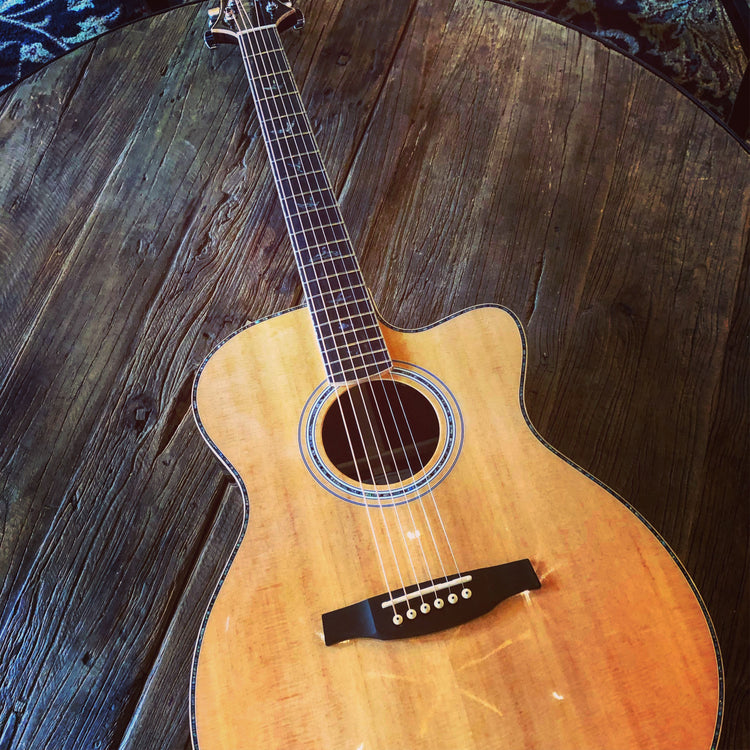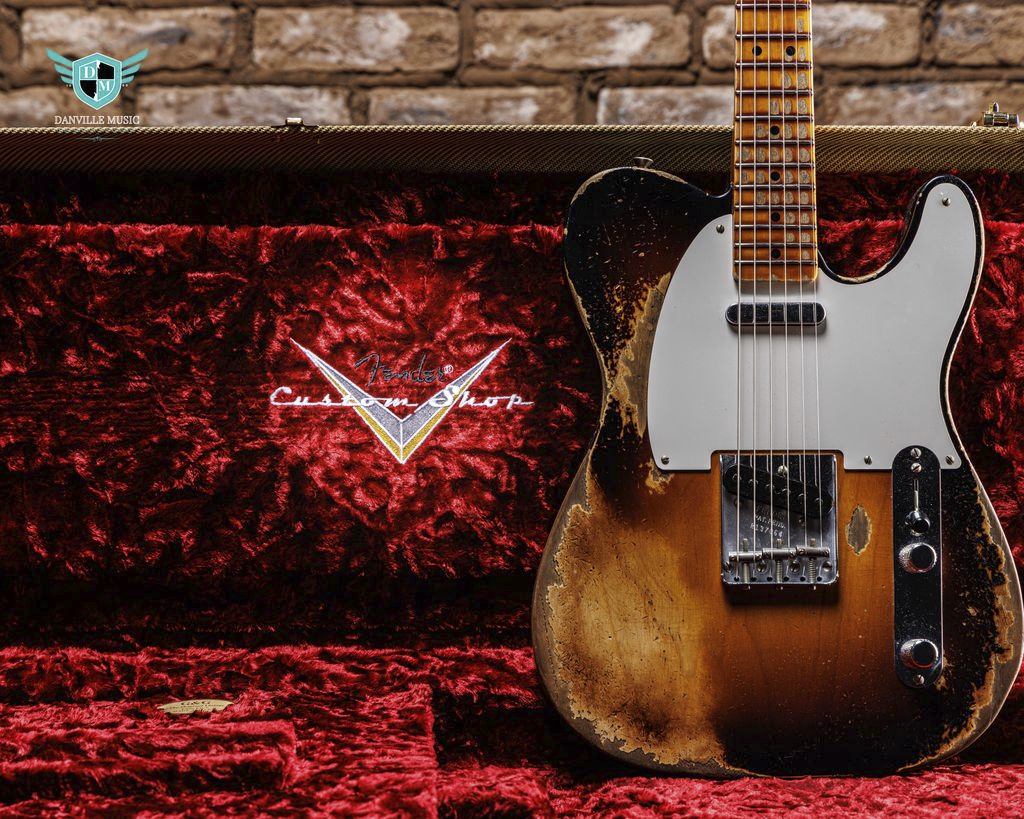Introduction
In the busy world of rock and roll, where the spotlight shines brilliant and the stakes are high, every musician understands that the program needs to go on. Whether you're belting out anthems in front of thousands or setting tracks in a studio, having the ideal equipment can imply the distinction in between musical magic and total disaster. One of the most necessary pieces of equipment for any rock star is their guitar, and when it pertains to renowned instruments, few brand names resonate as deeply as Gibson. With models like the Gibson Les Paul and Gibson SG, these guitars have shaped the sound of rock music for decades. However what occurs when your primary axe goes down? This is specifically why every rock star requires a backup Gibby on tour.
The Value of Having a Backup Guitar
Why Every Rock Star Needs a Backup Gibby on Tour
Imagine this: you remain in the middle of a high-energy performance, the crowd is roaring, and unexpectedly your beloved guitar goes silent due to an unexpected technical problem. The heart-stopping moment can feel like eternity for both you and your audience. A backup guitar not just guarantees that you can keep playing however also offers assurance. In this area, we'll explore different reasons why having a backup guitar-- specifically a Gibby-- is important for any touring musician.
Gear Failure Occurs-- Be Prepared
Every artist has experienced gear failure at some time. Strings break, electronic devices stop working, or even worse-- guitars can get damaged throughout transit. Having a backup indicates you're gotten ready for whatever mishap may occur.
Consistency in Tone and Playability
Different guitars have distinct tonal attributes. While it is essential to have versatility within your toolbox, there's something to be said about consistency-- specifically if you have signature sounds that specify your style. A backup Gibby can assist keep that consistency.

The Psychological Connection
Many artists develop emotional accessories to their main guitars gradually. For instance, a Gibson Les Paul might hold substantial memories from turning points in your profession. A backup gives you convenience during performances by providing familiar playability and sound.
Touring Logistics: The Practical Side
When you're on trip, logistics end up being crucial to success. Having two similar instruments means less hassle with setup modifications and decreases downtime if something goes wrong.
Choosing Your Backup: What to Consider
Identifying Your Main Guitar's Characteristics
Before selecting a backup guitar, understand what makes your main instrument special. Is it its weight? The pickup configuration? Knowing this will guide you in selecting an efficient alternative.
Matching Tonewoods and Hardware
Tonewoods play an essential role in shaping sound; for this reason it's vital to choose wood types comparable to your main instrument when selecting a backup guitar. For instance, if you're using a Gibson Les Paul made of mahogany with humbucker pickups, think about another design with similar specs.
Budgeting for Your Backup Gibby
While it's tempting to go all out for that dream guitar as your backup, budget plan constraints frequently come into play. You don't always need to spend leading dollar; sometimes mid-range choices can serve exceptionally well as backups.
The Pros and Cons of Various Models
Gibson Les Paul vs Gibson SG: Which is Right for You?
Both the danvillemusic.com gibson sg guitars Gibson Les Paul and Gibson SG have distinct homes that can affect your option for a backup guitar:
Gibson Les Paul
- Pros: Thick sustain, flexible tone range Cons: Much heavier weight
Gibson SG
- Pros: Light-weight style with sharp attack Cons: Slightly less sustain compared to Les Paul
Ultimately, selecting in between these two iconic designs depends upon personal preference.
Exploring Signature Models vs Basic Models
Signature models often come with special functions tailored to particular artists' requirements but may carry higher cost. Requirement models are typically more accessible but offer fewer customizations.
Setting Up Your Backup Gear
String Selection: Match or Mismatch?
When setting up your backup Gibby, think about whether you'll use the exact same string gauge as your main guitar or try something various based upon performance needs.
Tuning Stability: Important Factors
Ensure that both guitars are established similarly worrying tuning stability-- this consists of checking nut slots, bridge setups, and modulation adjustments.
Electronics Check-up Before Each Tour Stop
Before striking the stage at each place throughout trips, do fast look at electronics such as pickups and electrical wiring in both guitars.

Travel Tips for Keeping Your Guitars Safe
Proper Cases: Difficult vs Soft Cases
Choosing in between tough cases or soft gig bags greatly impacts protection levels throughout travel:
- Hard Cases: Deal superior protection against damage. Soft Cases: Easier transportation however less protective.
Consider investing in quality hard cases for both guitars whenever possible.
Climate Control During Transit
Extreme temperature levels can warp wood in time; hence it's wise to keep climate control when transporting instruments-- look into temperature-controlled storage services if available.
On-stage Methods with Two Guitars
Quick Changes Between Guitars During Performances
Practicing fast transitions in between numerous instruments assists avoid uncomfortable pauses throughout live programs-- consider having roadies assist with switches if needed!
Creating Special Setlists Based on Guitar Tones
Utilize various tones from each instrument strategically throughout efficiencies; changing gibson sg guitars guitars mid-set might elevate energy levels dramatically!
FAQ Section
Why should I buy a backup guitar?- Investing in one reduces threats related to equipment failure throughout performances.
- While technically yes-- you'll attain better results by matching specs carefully to your primary instrument.
- Aim for similar weight distribution & & tonal qualities found in your primary axe.
- It might initially take getting utilized to; nevertheless lots of musicians adapt relatively quickly!
5. Is it needed to have identical models?
- Not always! Comparable specs will suffice while still enabling room for variety.
6. How do I make sure both guitars remain properly maintained while touring?
- Regular checks before gigs & & regulated transportation conditions go far towards preserving them!
Conclusion
In conclusion, "Why Every Rock Star Requirements a Backup Gibby on Tour" isn't practically redundancy; it's about ensuring undisturbed musical expression through consistent sound quality and emotional connection with one's instrument. From understanding equipment failures' inevitabilities to honing effective methods around multi-guitar setups-- having that dependable second ax at hand pays dividends both virtually & & artistically alike! So next time you're getting ready for trip season believe beyond just one fantastic Gibson; ensure you have actually got its capable equivalent ready too!